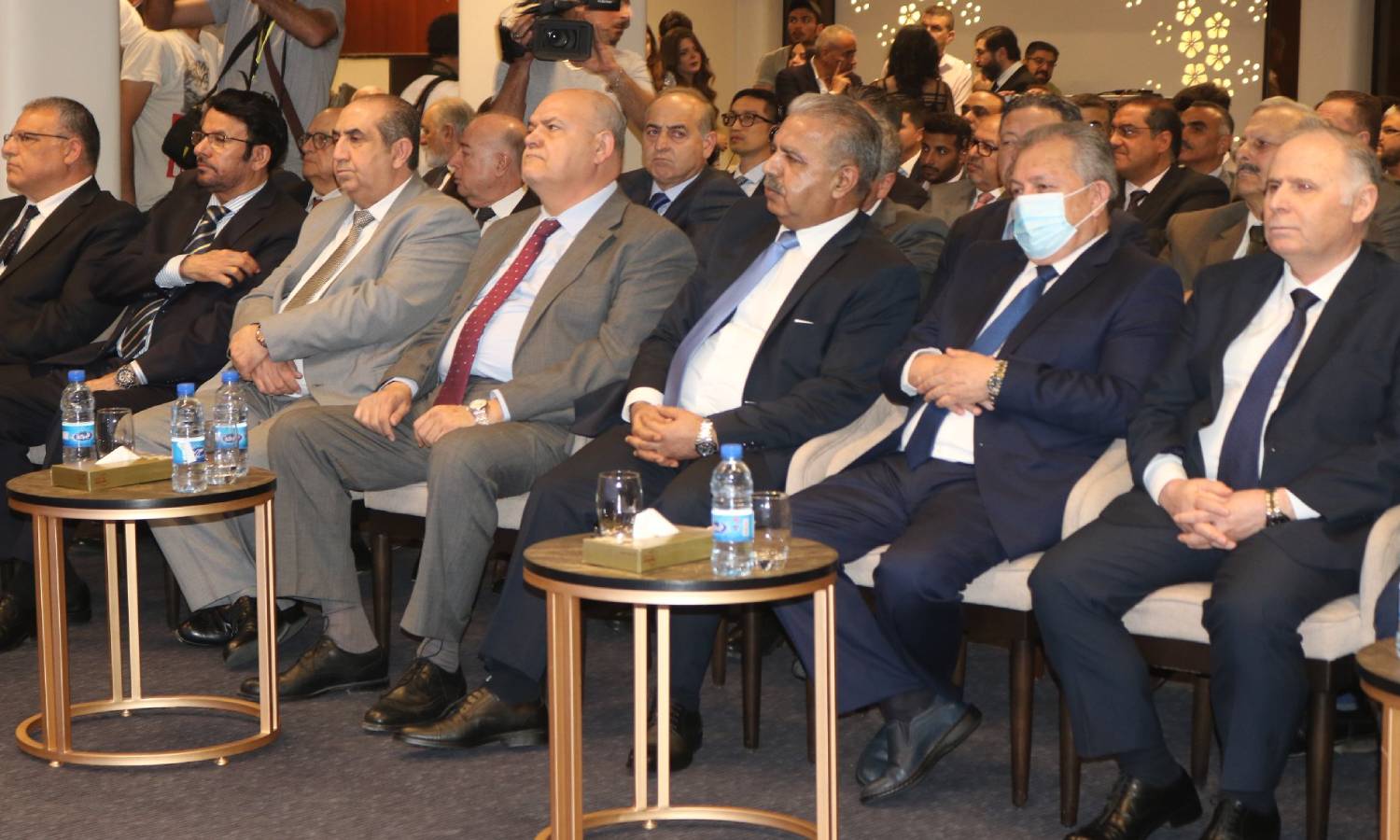



Enab Baladi – Jana al-Issa
The Syrian regime has repeated its calls for Arab and foreign investors to invest in its areas of control, as pleas intensified after the head of the regime, Bashar al-Assad, ratified a new investment law in May 2021.
If the fears of exposure to the US sanctions on those dealing with the regime government were excluded as a reason for the lack of investor appetite, many additional factors would combine to make Syria an unsuitable country for investment, including security, political, and economic reasons.
On several occasions, the regime government assured those wishing to invest of its ability to circumvent sanctions.
However, the low investment rates oppose the regime’s attempts to attract investments by offering special facilities and advantages while promoting the “stable and appropriate” security situation for investment.
Enab Baladi discusses in this report the predisposition of the economic environment in the regime-held areas for the resumption of foreign investments in the light of various security and economic factors that hinder this from being achieved.
Before deciding to invest in a particular country, foreign investors must study and determine the extent of the risky investment climate in that country, according to “Investopedia.”
The investment climate is the economic, financial, social, and political conditions in a country that affect the willingness of individuals, banks, and institutions to lend to private companies operating in it.
According to the website that covers business and investment news, the investment climate is affected by several indirect factors, including the level of poverty, crime rate, infrastructure, labor force participation, national security considerations, political stability, taxes, liquidity, financial market stability, the rule of law, property rights, regulatory environment, and the government transparency and accountability.
According to Dr. Joseph Daher of the European University Institute in Florence, Italy, the investment climate in Syria, based on these criteria, is considered inappropriate and unsuitable for starting investment.
The most prominent obstacles to investment in the regime’s areas today are the lack of political stability and the ongoing war situation, as the presence of armed militias and fighting groups, such as the Islamic State (IS), is considered an unhelpful factor in starting investments, Daher said.
The destruction inflicted on the Syrian economy, which was a reflection of the continuous and severe deterioration of the value of the Syrian pound, the shortage of skilled labor due to the effects of war and migration, and the severe impact of the war on infrastructures such as electricity, water systems, and others, are additional factors that are not conducive to an encouraging environment for investment.
The high production costs due to the shortage or increase in the prices of commodities and raw materials such as oil and gas, in addition to the very weak financial system, is one of the main reasons that generate a desire among investors to invest their money in Syria, and the US sanctions have recently come to deepen and worsen these combined factors, according to Daher.
The Minister of Economy in the Syrian regime’s government, Mohammad Samer al-Khalil, announced on 22 June that the Syrian Investment Authority had granted 32 investment licenses since the date the Investment Law No. 18 of 2021 entered into force until last June.
Al-Khalil explained that the value of the assets of the investment projects that were granted the license during this period amounted to about 1,357 billion Syrian pounds, adding that there are additional licenses that are still under issuance as well.
Most of the investment projects were based in Damascus suburbs. They included power generation, cancer drugs, yeast, glucose and starch syrup, pharmaceutical injections, medical alcohol, fertilizers, electronic chargers, and inverters, the Minister said.
Political economy researcher Joseph Daher believes that there is “very little” willingness to invest, whether by Syrian or foreign investors, explaining that most of these investments are small investments by foreign parties supporting the Syrian regime, such as Russia and Iran.
Those investments were concentrated in private economic sectors, such as oil extraction (Russian companies) or rebuilding some infrastructure (Russian and Iranian companies), but the private sectors in both countries are very weak, according to Daher.
He considered that most Syrian businessmen outside the country are not ready to return and invest for all the reasons and obstacles mentioned, in addition to the existence of sanctions as well.
For any investor, the investment aims at profit and capital accumulation, or hoarding resources for the purpose of making a profit, while the prospects for achieving quick and medium-term returns and profits from investing in Syria are considered “very limited” at the present time for political and economic reasons, says Daher.
“This does not create any incentives to launch investment projects, whether from inside or outside Syria,” he adds.
The security situation, such as the repeated Israeli bombing and the militias deployed in regime-controlled areas, are security factors that may weaken the investors’ desire, taking into account the loss of their investments as a result.
Damascus International Airport was subjected to an Israeli strike on 10 June, which put it out of service for 12 days, and led to the destruction of the airport’s infrastructure and the exit of the airstrips out of service, as they were damaged in more than one location and significantly, along with the navigational lights.
In December 2021, Israel targeted the port of Latakia twice and hit the container yards, according to what was announced by the regime’s media outlets.
Imad Qabbani, head of the customs committee in the Damascus Chamber of Commerce, revealed on 29 December 2021 that 85 percent of the goods targeted at the port of Latakia were industrial raw materials, in addition to foodstuffs.
Qabbani estimated to the Damascus-based al-Watan newspaper the extent of the damage as “significant,” stressing that Israel targeted foodstuffs, threads, and materials related to reconstruction, as the majority of the materials imported by the Syrian regime are raw and food materials due to import rationalization.
if you think the article contain wrong information or you have additional details Send Correction